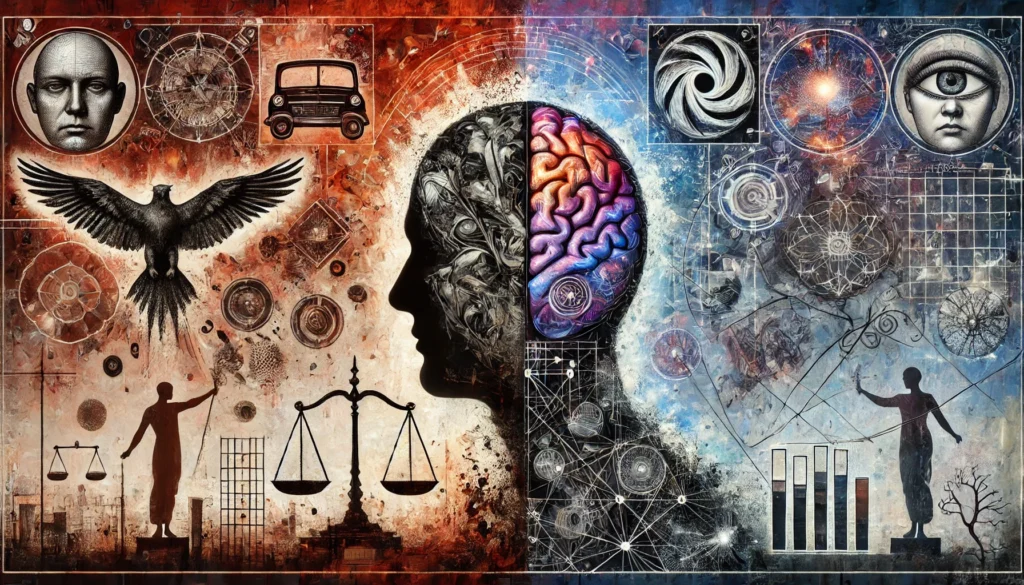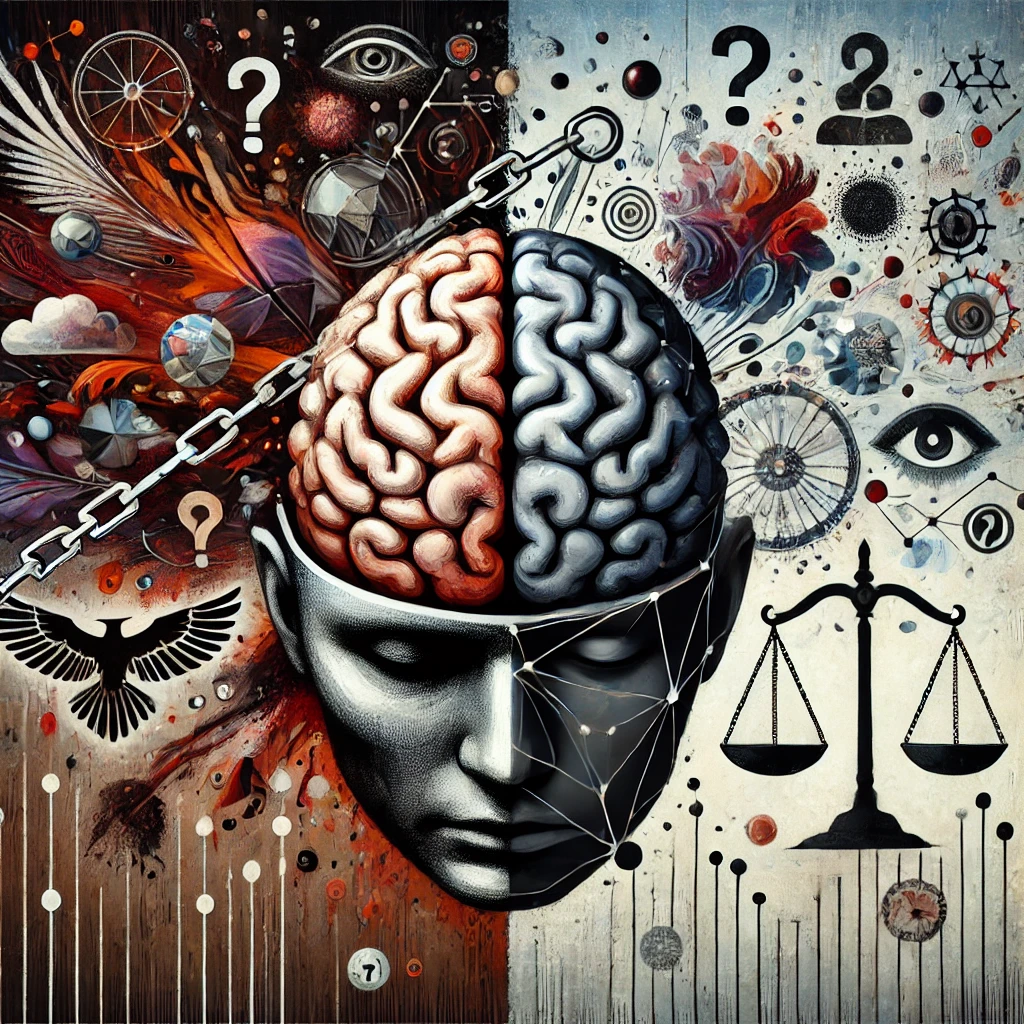Understanding criminal behavior is a complex process that involves psychological, social, and environmental factors. Among the various explanations for why individuals engage in criminal activities, psychological theories play a central role. These theories delve into the mental processes, emotional states, and personal experiences that influence criminal conduct. This article explores some of the most influential psychological theories of criminal behavior, aiming to shed light on the psychological aspects of crime and its prevention.
1. The Role of Psychology in Criminal Behavior
Psychology examines the mental and emotional processes that guide human behavior. In criminology, psychological theories focus on understanding the individual’s internal state—thoughts, emotions, and behaviors—that contribute to criminal actions. These theories argue that criminal behavior is often the result of abnormal thought patterns, personality disorders, and unresolved psychological issues.
2. Psychoanalytic Theory: Freud’s Contribution
Sigmund Freud’s psychoanalytic theory offers a foundational approach to understanding criminal behavior. According to Freud, the human psyche is divided into three parts: the id, ego, and superego. The id represents primal desires and impulses, the ego works to balance these desires with reality, and the superego acts as the moral compass. Freud suggested that criminal behavior could stem from an imbalance between these elements, particularly when the superego fails to exert control over the id, leading to impulsive actions.
Freud’s theory has been influential but also criticized for its lack of empirical evidence and its focus on unconscious drives. Despite this, it set the stage for further exploration of the relationship between early childhood experiences, the unconscious mind, and criminal actions.
3. Social Learning Theory: Bandura’s Influence
Albert Bandura’s social learning theory offers another significant psychological framework for understanding criminal behavior. Bandura emphasized the role of observational learning, suggesting that individuals learn behaviors, including criminal ones, through observing others. In this theory, individuals are likely to imitate behaviors that are rewarded or seen as acceptable in their environment, whether these behaviors are criminal or not.
The theory also highlights the importance of reinforcement, where behaviors that are positively reinforced (rewarded) are more likely to be repeated. Thus, individuals who grow up in environments where criminal behaviors are normalized or rewarded may be more likely to engage in such behaviors themselves.
4. Cognitive Theory: Thoughts and Criminal Behavior
Cognitive psychology focuses on the ways people perceive and process information. Cognitive theories of criminal behavior assert that criminals often have distorted thinking patterns that justify their actions. One prominent cognitive theory, developed by Aaron Beck, suggests that individuals who engage in criminal activities may have negative core beliefs about themselves and the world. These distorted beliefs lead to criminal thinking patterns such as justifying harm to others, minimizing the consequences of their actions, or blaming their environment.
Cognitive-behavioral therapy (CBT) is often used to help individuals challenge and change these harmful thought patterns, and it has shown success in reducing recidivism among offenders. Cognitive distortions, such as “blaming others” or “all-or-nothing thinking,” are common among criminals and are targeted in therapy to help prevent future offenses.
5. Personality Theories and Criminal Behavior
Certain personality traits have been associated with criminal behavior. The Five-Factor Model (Big Five Personality Traits) includes dimensions such as openness, conscientiousness, extraversion, agreeableness, and neuroticism. Research has shown that individuals who score low on conscientiousness and agreeableness and high on neuroticism are more likely to engage in criminal behavior.
Furthermore, psychopathy and sociopathy are personality disorders that have been closely linked with criminal actions. Psychopaths, in particular, display a lack of empathy, remorse, and emotional depth, which can make them more prone to committing violent crimes. Theories around psychopathy suggest that individuals with this disorder may struggle with moral reasoning and impulse control, often leading to criminal behavior.
6. The Impact of Childhood Trauma
Many psychological theories of criminal behavior emphasize the role of early experiences, especially childhood trauma. Adverse childhood experiences (ACEs), such as physical abuse, neglect, and exposure to violence, are strongly correlated with the development of criminal tendencies in later life. Children who experience trauma may develop maladaptive coping mechanisms that can manifest in violent or criminal behavior.
Attachment theory, developed by John Bowlby, also plays a critical role in understanding criminal behavior. Bowlby argued that children who experience insecure or disrupted attachments with caregivers may develop issues with emotional regulation and interpersonal relationships, increasing the likelihood of engaging in antisocial behavior.

7. Theories of Aggression and Violence
Psychological theories of aggression explain how individuals may develop tendencies toward violent behavior. The Frustration-Aggression Hypothesis, proposed by John Dollard, posits that frustration—such as the inability to achieve a goal—can lead to aggression. This frustration may manifest as criminal behavior, especially in individuals who have difficulty coping with negative emotions.
Additionally, General Aggression Theory (GAT), developed by Anderson and Bushman, suggests that aggression is the result of a combination of individual traits, situational factors, and learned behaviors. This theory integrates elements of both social learning and cognitive theories, emphasizing how aggressive individuals are more likely to interpret situations in a way that provokes violent responses.
8. The Role of Mental Disorders in Criminal Behavior
Mental disorders are often discussed in the context of criminal behavior. Conditions such as schizophrenia, bipolar disorder, and personality disorders may contribute to criminal actions in some individuals. However, it is important to note that not all individuals with mental health issues engage in criminal behavior, and the majority of people with mental health disorders are not violent.
In the case of schizophrenia, for instance, the disorder’s symptoms—such as delusions or hallucinations—can sometimes lead to behaviors that are perceived as criminal. Similarly, individuals with antisocial personality disorder may disregard societal norms and show a pattern of deceit and manipulation, which can result in criminal actions.
9. Integrating Psychological Theories for Crime Prevention
Psychological theories of criminal behavior offer valuable insights into the factors that lead to crime. By understanding the psychological roots of criminal behavior, we can better develop strategies for prevention, rehabilitation, and intervention. Cognitive-behavioral therapy, psychoeducation, and trauma-informed care are among the most effective methods for addressing the psychological aspects of crime and preventing reoffending.
Furthermore, interventions that focus on modifying behavior through positive reinforcement, improving emotional regulation, and fostering healthier interpersonal relationships can significantly reduce criminal tendencies. Programs designed to treat underlying mental health conditions, such as therapy for psychopathy or trauma, also play a crucial role in breaking the cycle of criminal behavior.
Conclusion
Psychological theories of criminal behavior provide essential perspectives on the causes of crime. From Freud’s early psychoanalysis to modern cognitive and social learning theories, the mind of the criminal remains a critical area of study in criminology. While no single theory can explain all criminal behavior, a multi-faceted approach that integrates various psychological frameworks can help us better understand and address the complexities of crime. By targeting the mental and emotional aspects of criminal conduct, we can develop more effective strategies for crime prevention and rehabilitation.

